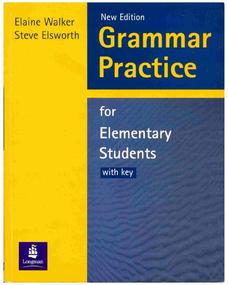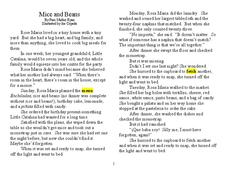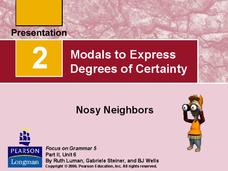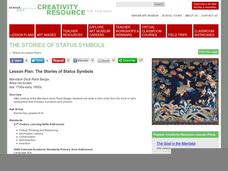Ed Galaxy
Parts of Speech Posters
Support young learners with learning the different parts of speech using this series of displays. Complete with definitions and examples of each type of word, these would make a great addition to any elementary classroom.
Polk Bros Foundation
Picture Planner
Show your class that there is more than one way to communicate an idea. Pupils note down their ideas and then brainstorm a few things they want to include in their pictures. Then, in the box provided, they sketch and describe their...
Candace Fleming
A Reader's Theater Script for Clever Jack Takes the Cake
Breathe life into a reading of the children's story Clever Jack Takes the Cake with this Reader's Theater script. Offering speaking roles for nine students plus a sound effects chorus, this is a great activity that engages the whole...
Tools for Schools
Book Creator
Build beautiful books in whatever style you'd like with an intuitive and adaptable app for constructing books. Kids can add images, drawings, text, and audio to make books about any subject. When complete, learners can wrap up the...
Longman
Grammar Practice for Elementary Students
Designed for elementary students, this 178-page practice booklet covers all the basic elements of grammar instruction.
K12 Reader
My Favorite Activity
What is your favorite thing to do on a Saturday afternoon? You can look forward to a nice variety of descriptions from your youngsters regarding this classic writing prompt.
K12 Reader
The Best Thing I Do
Youngsters will boost self-confidence and practice narrative writing by describing one of the best things they do, whether it be a special talent, extracurricular activity, or a unique personality trait.
Teach-nology
Correctly Using Plurals
Young grammarians must select the correct plural form on the nouns in 12 sentences.
Mrs. Mann
Mice and Beans
A great addition to a multicultural unit or curriculum study, use the set of questions based on Pam Muñoz Ryan's Mice and Beans to engage learners and enhance their reading experience. As youngsters read, they note the highlighted words...
Pearson
Modals
Ever wonder about the future? Now you know how to speculate in a grammatically correct way! Work on modals to speculate about events from the past, present, and future with a helpful and straightforward slideshow presentation.
T. Smith Publishing
Your Five Senses
Using the five senses is a creative way to write descriptively. Learners read 25 words, both nouns and verbs, and place them into the category labeled with the correct sense.
National Institute for Literacy
Making Sense of Decoding and Spelling
Go over digraphs, vowel sounds, and affixes with a series of decoding and spelling lessons. Each lesson guides learners through a different reading and phonics skill, building on the lesson before, and challenging them with each step.
Pearson
The Present of Be: Statements and Yes/No Questions
To be or not to be? That's not the question in this presentation, but it features ways to use the forms of to be in other questions. A great addition to your grammar unit.
Brigham Young University
Out of the Dust: Guided Imagery
A guided imagery exercise is a great way to get readers thinking about writing. As part of their study of Out of the Dust, Karen Hesse’s 1998 Newbery Medal winning verse novel, class members listen to a reading of one of the poems from...
Pearson
Non-Action Verbs
A verb is something you do — but can you always see the action? Use a slideshow presentation to clarify the differences between verbs that describe actions, and verbs that describe senses, preferences, and emotions.
Pearson
Advice: Should, Shouldn't, Ought to, Had Better, and Had Better Not
You shouldn't miss out on an opportunity to review should, shouldn't, ought to, had better, and had better not! Elementary and middle schoolers view a slideshow presentation that focuses on usage rules and examples for these tricky verbs.
Pearson
Questions with Any, Some, How Much, How Many; Quantity Expressions
How many times do you need to review quantity expressions? Focus on the words any, how much, some, and how many with an engaging grammar presentation.
Nosapo
Shopping for Clothing
Let's go shopping! A series of activities focus on vocabulary words related to articles of clothing and shopping for clothes. Additionally, learners complete sentences using how much and how many.
Poetry4kids
How to Write a Free Verse Poem
Budding poets compose an original free verse poem. Encouraged to use personification and alliteration, scholars read over three tips and examples then try their hand at drafting a poem of their own style.
Poetry4kids
How to Write Funny Poetry — Chapter 1: Writing Poetry
Do you wish you could write poetry that makes people laugh? Now you can! Check out the first chapter in a poetry writing series that emphasizes the importance of connecting subject matter to a light, bouncy meter.
Poetry4kids
How to Write a Repetition Poem
A repetition poem is the focus of a lesson that challenges scholars to compose an original piece. To add meaning to their poem, authors choose words to repeat at the start of most lines.
Curated OER
The Stories of Status Symbols
A good writer needs to be observant and have an imagination. Hone those creative writing skills with an activity inspired by a very old Chinese artifact. Learners examine the piece Mandarin Duck Rank Badge, and then write a story from...
We are Teachers
Read Like a Detective
Encourage your young readers to become true detectives in their next literary adventure! Here you'll find an attractive display that will prompt your learners to constantly be looking for clues, asking questions, making cases about the...
Student Handouts
Father's Day Acrostic
Fantastic? Friendly? Funny? What adjective will your youngsters choose for the first letter in father as part of this great Father's Day acrostic worksheet?
Other popular searches
- English Language Arts
- English Language Arts Exam
- English Language Arts Games
- Deaf English Language Arts
- English Language Arts Music
- English Language Arts Heroes
- English Language Arts Skills
- English Language Arts Grade 3
- English/language Arts
- English Language Arts Poetry
- English Language Arts Rating=3
- English Language Arts Unit Sc

























